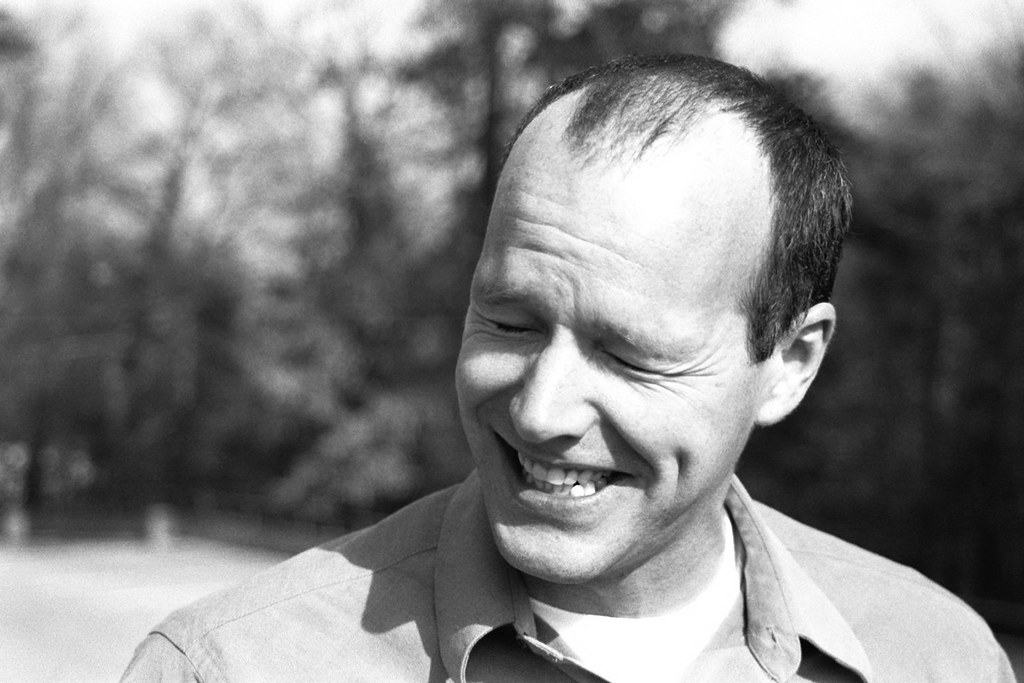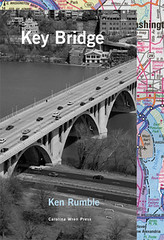November Reading Wrap Up
I realized, while thinking about writing this up on the way back from dropping Cecil at the Amtrak station this morning, I realized that if I kept talking about how wonderful were the readings by the poets, the reception at the Blue Door, the reading at the Blue Door, the graciousness of the Internationalist, the vibrancy of the crowd, the joy and deep engagement of this incredible poetic community that exists here, the paintings in the blue door, the hosting of the Blue Door, the poems that the poets read, the singing, the weather, the conversations, the dancing, the hugging, the dreaming, the dancing, the poems, the people, the friends, the loved ones, the new ones, the old ones, the soon-to-be-good ones, the readings, the food, the Blue Door, the Todd and the Laura, the Maura, the Brian, the Cecil and the Jon, the Patrick, the Chris, the Tony and the Leigh, the Evie, the Tessa, the Micah and the Amy, the Fish, the Randall, the Rafael, the Kathryn, the Kathryn, the Kathryn, the Amber (don't go!!!), the Joe (who recently gave me the greatest gift someone can give a poet: a close, considered reading of the poet's work), the Cecil, the Heather and the Brian, the Laura, the Todd, the Jon, the Chris, the Ethan, the Kristina, the Phaedra, the et cetera, the et cetera, the et cetera, that if I kept just trying to describe how wonderful, heart/soul/mind/body/wardrobe enriching, delightful, and full of love and joy that these evenings make me feel, that if I tried to keep describing those things after each reading, that in describing those things once, sometimes twice, a month for the next sixty odd years, that in describing these things I would endlessly be describing these things.
Thank you. Thank you all for all.
See you in 2005........
*******
Cecil Giscombe and Jon Thompson Intro
1. Announcements and welcome
a. January 15th, Saturday, 8pm – Standard Schaefer & Marcos Canteli with Rachel Price translating
b. February 19th, Saturday, 8pm – Cole Swensen & Chris Vitiello
2. Welcome
a. Thanks for coming
b. Introduce yourself
c. The Desert City is a non-profit, volunteer run and funded organization. Both of the poets tonight are appearing without receiving any compensation. Please make a donation to support the poets and the series. Please buy books to support the internationalist.
d. Sign up sheet for announcements in the back.
3. Thank yous
a. The internationalist
b. Jon & Cecil.
c. All of you.
d. and Kathryn.
4. Tonight, though, we’re here to see Cecil and Jon.
5. “Give witness,” writes Jon Thompson in his poem “Absolution,” “Give witness to those things beyond the eye / that define the complexion of each day / the vast tissue of connections / that decides each act.” The poems in Thompson’s just published first collection of poetry seek and give shape to that “vast tissue of connections.” His poems reveal, as he writes in “Under Water”, “a tale of tiered temples and cloistered beauty / on the very brush-stroke of cruelty.”
6. Fortunately for us, Jon lives and teaches just down the road in Raleigh. He teaches 20th century British and American literature at NC State, and during his tenure, has mentored some of the best young contemporary poets, including Aaron McCollough, Todd Sandvik, Tim Botta, and Jon Minton.
7. He also serves as the editor of the literary magazine Free Verse which consistently features thought provoking work in a range of aesthetics. He was also recently named the editor of Parlor Press’s Free Verse Editions Poetry Series.
8. Tonight we are celebrating the publication of his first volume of poetry The Book of the Floating World published in October.
9. The poems in The Book of the Floating World revolve around a series of photos of Japan during the US’s post WWII occupation taken by Thompson’s father. From these touching off points, Thompson writes of history and the world and “the unnatural musical light … breaking / in waves / over a future which is unaware.” Thompson’s poems circle our pervasive lack of awareness, our inability to see sideways in time the way a poem or a photograph can.
10. This sideways view pervades the poems in this first collection. He writes in “Double Exposure,” a poem that begins watching a man rummage in garbage, he writes, “he knows he is just in time to witness the art / by which he becomes the eater of trash / the user of refuse one of the lucky ones / and his only response is the leaden impassivity of his face / this accident he knows / but he is unaware of the accident of double exposure / whereby suddenly he is standing in a radiant field / that stretches for days / to reach some steeply-wooded mountains.”
11. In the end these poems evoke the impenetrable, unspeakable moments that cause the present. Thompson’s task – to speak the unspeakable – is impossible, but this task is met with a worthy eloquence. He writes in “Thresholds”, “the story of ascending smoke which is his story / a story in which he does not exist / a story in which the photographer of the photographer does not exist / a story in which the I that writes these lines / does not exist / a story in which the photo fades with the smoking tree / a story in which the story gets in the way / of the story that cannot be told.”
12. Please welcome Jon Thompson.
13. “I have no complaints loud or soft but know // that ceremony gets complicated out past the gates // to the city, in those integers out there it gets // uneven (meaning connected, factual, // chancy & unconnected) // hardly a blessing.”
14. Cecil Giscombe is the author of the poetry collections Here, Giscome Road, Inland, and At Large. His first non-fiction book, Into and Out of Dislocation, is a record of his search in British Columbia, the far far north, for a man who may have been a relative. His second non-fiction book, Traveling Public, is forthcoming from Coffee House Press.
15. “to be at odds w/ nothing in my life / at loggerheads w/ no man or woman / to have no ritual, no quantity of value here / or over there / no gift / at something or for / anyone // but approaching as if from / close in / as if from far away, either one / (visible”
16. He is a professor at Penn State University and organizer of the Mixed Blood Reading series. He has won a Fullbright Scholarship, a fellowship from the NEA, a Pushcart award, and was selected by Adrienne Rich for the Best of American Poetry Anthology.
17. “culture was more than indefinites, it was an archipelago // of colonies, all names / had fled from memory & from the map both, // I saw typescript loose in the air all around our location when we spoke / in the dream, // the sentences disembodied but readable”
18. Born in Dayton, Ohio, he received degrees from SUNY Albany and Cornell. He has ridden his bike close to 70,000 miles in the last 25 years, waded through Penn’s Creek with his bike on his back, and shipped his bike by plane and train into and out of several different countries.
19. “To me, image is any value in the exchange. Pleasure’s accidental. In any event, it’s hard to measure and harder still to memorize, pleasure. Image stands in. To me, voice is that which gets stuck in the head, effected voice, or in between the teeth, the hiss of love.”
20. Cecil is my dear friend, mentor, and poetic compass.
21. “Having wanted to drive out to the edge, right out // to the mutest edge out there, // the mutest edge, the emptiest soundstage, // out to the invisibility there, out // to all that “up” there in Canada that took place up there-- // Giscome, B.C. all unincorporated now up // on the Upper Fraser Rd.”
22. Please welcome Cecil Giscombe.





